Apex Bike review: Peloton rival offers a more affordable home spinning option
The Apex Bike is a slick, well made smart bike that's significantly cheaper than a Peloton - but is it any good?
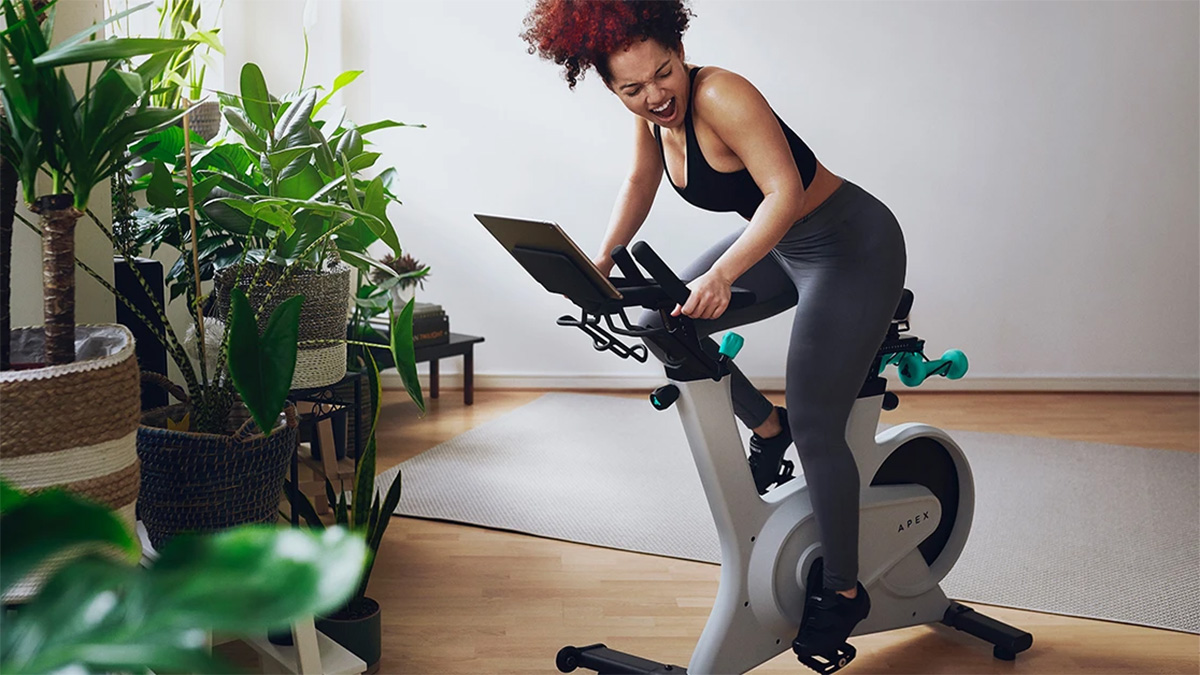
Despite costing just half the price of the market-leading Peloton Bike+, Apex delivers an exceptional experience for anyone in the market for a well made, spin studio-style exercise bike.
-
+
Stylish design
-
+
Really well built
-
+
Great value
-
+
Fun and engaging instructors
-
+
4 colors to choose from
-
-
Weights cost extra
-
-
Only works with iOS devices (Android is coming soon)
You can trust Fit&Well
Welcome to my review of the Apex Bike, the connected studio-style home exercise bike.
If lockdown has spoiled the way you exercise and you’re still happy - or even prefer - to sweat it out in your lounge than schlep down to the gym, chances are you’ve considered buying some proper home gym equipment.
And if an exercise bike is on your list, it's likely that a Peloton bike is already on your radar. As the market leader when it comes to home exercise bikes (and an entry on our list of the best exercise bikes), the US home fitness giant has become the go-to for those looking to bring those boutique studio vibes to their homes.
The only downside here is the price. A Peloton certainly doesn’t come cheap, costing well over £2,000 (just under $2,500 in the US) for the latest model, the Bike+. What people have been longing for is an alternative that doesn’t cost the earth, but doesn’t skimp on quality and features either.
The Apex Bike could well be that alternative - for Brits, at least. Currently only available in the UK, it can definitely be considered a cheaper, British equivalent to Peloton. But can it deliver the same compelling spin experience? That’s what we’re here to find out.
Apex Bike: price and features
Apex launched its debut exercise bike in July 2020, priced at £1,200. In case you're wondering, that's almost £600 less than Peloton’s cheapest option. It's available directly from Apex or via John Lewis, with a one-year warranty included.
A range of Apex-branded accessories are also available, such as dumbbells (£25 a pair) and resistance bands (£18 for a pack of five).
Start your week with achievable workout ideas, health tips and wellbeing advice in your inbox.
What you get for your £1,200 is a rather handsome (not to mention lightweight and ergonomically designed) exercise bike, complete with Bluetooth and wi-fi connectivity. Unlike Peloton, the Apex also comes in a choice of four different colors: black, navy, 'mist' (a light grey) and 'sand' (a shade of beige).
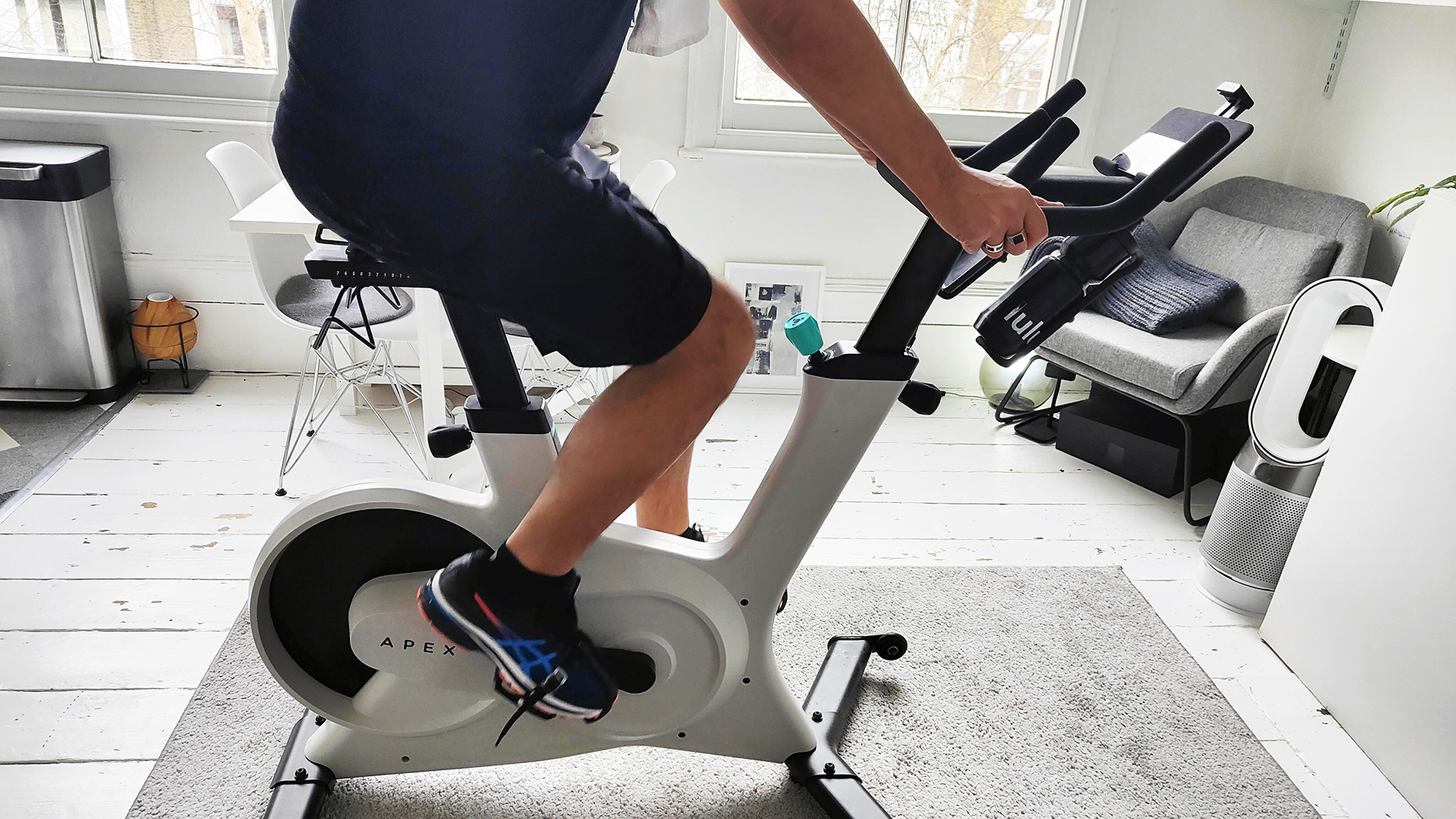
What you won't get, however, is a screen - to take part in online classes, you'll need a smart device such as a tablet, phone or smart TV (there's a built-in stand for the former).
On that note, if you really want to bring the Apex experience to life then you need to purchase the virtual spin classes, which syncs with the bike via the Apex Rides app on the iPad. These will set you back £29.99 per month (almost £10 cheaper than Pelton's classes) and includes unlimited access for up to six people per household.
The downside? The app only works with Apple iOS devices thus far. While Apex have told us that support for Google’s operating system is right around the corner, it’s not here yet, so Android users will have to do without for now.
Apex Bike review: design
Despite its relatively low price compared with other smart bikes currently on the market, the Apex Bike still boasts a pretty impressive design and build. Right from the get-go, it’s clear this lump of metal is made from some quality materials, feeling sturdy and looking nice and sleek at the same time.
With such a solid frame, it comes as no surprise that this exercise bike is a heavy bit of kit, weighing just over 41kg. For those worried about how to maneuver it around, it is still possible thanks to a pair of wheels mounted at the front. Just tip it onto its front end and it can easily be guided to the other side of the room. When it comes to storage, the Apex Bike doesn’t fold up, but it is pretty compact considering, measuring 120x160x117cm.
On the bike you’ll find a racer-style saddle accompanied by some rather narrow, multi-position “aero” handlebars. These work together to ensure the rider’s experience is as comfortable as possible. We found this was even the case during longer 45-minute classes. It’s a dream to park your bum on, relatively speaking, of course.
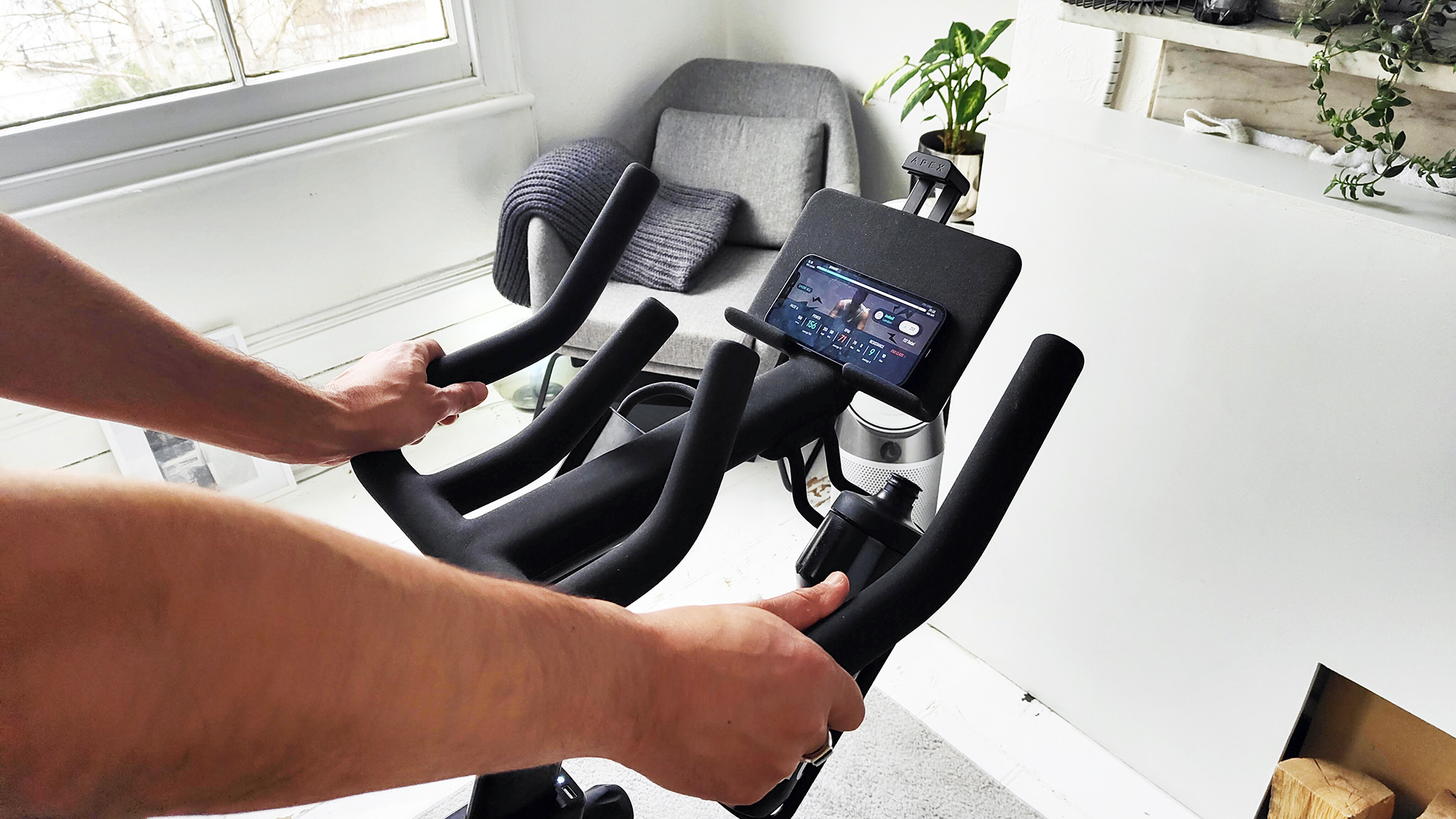
As for the pedals, you can choose between a 50/50 SPD clip-in system for cleated shoes or a buckled strap for use with ordinary trainers, which is good for those who aren’t so serious about their cycling. Still, integrating the more popular SPD-SL system would have been a much better option, in our opinion.
Unlike the Peloton, there’s no built-in display. We assume this is one of the main reasons why this bike is so much cheaper. Apex gets around this by offering a mount integrated into the handle bars where you can slot in and connect a tablet or smartphone. As mentioned earlier, only Apple iOS devices work with the bike currently, which is quite disappointing. Let’s hope that changes soon.
On a more positive note, there’s a pair of USB-A outputs at the front of the bike coupled with a water bottle holder and a wireless charging cradle for your smart devices - something the Pelton doesn’t have.
Apex Bike review: performance
Riding the Apex is easy, smooth and enjoyable. Before you even jump on the bike, you’ll find the saddle and handlebars are very straight forward to adjust thanks to their pull-and-slide adjustment knobs. There’s also a lever at the back to tweak the saddle fore/aft, which is handy.
Apex has supplied resistance to its exercise bike in the form of a 4kg flywheel at the rear, which might not sound very weighty when compared to more premium exercise bikes, but we found it to be more than decent. For example, the lowest setting offers plenty of room for rapid spinning and the highest is almost impossible to push. One little niggle, however, is that the dial used to control this resistance can be a little over-sensitive. We found that you’ll get used to this overtime with regular use, though.
Apex Bike review: classes and app
The spin classes you’ll find on the Apex Ride platform are top notch. The engaging and fun-natured instructors really help heighten the experience from start to finish. They are down to earth, funny and motivating without being cheesy, which has to be a pretty tricky concoction to master. Still, it works. They guide you through everything you need to know during your class, in a digestible way, so you can just concentrate on your workout.
The high-end production also helps here, making you feel part of a real spin studio - especially if you’re casting from your iPhone to a large screen TV. Yep, a 9-inch iPad doesn’t really cut it like a 64-inch TV does, unfortunately.
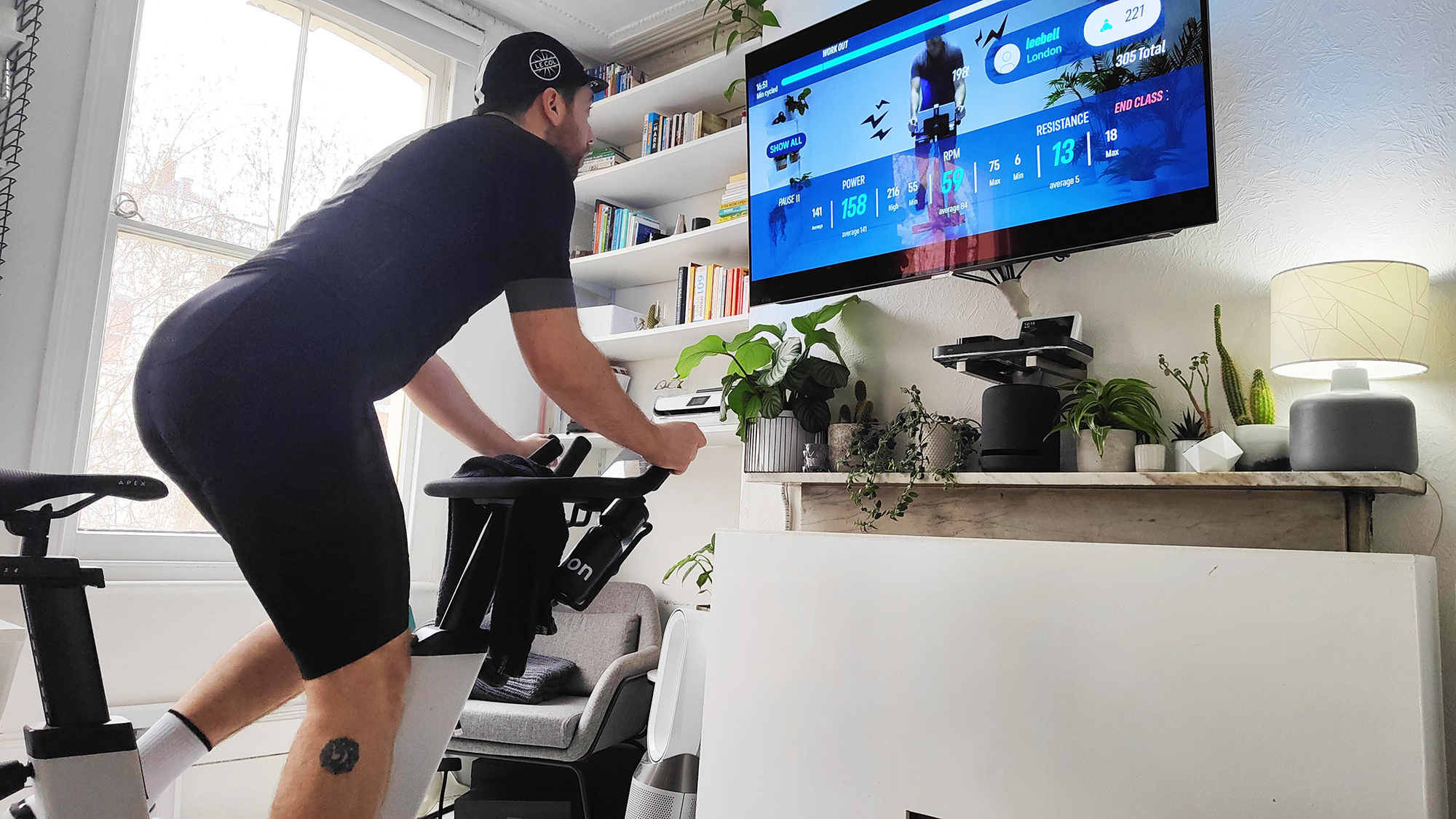
During your ride, you’ll be able to see your stats live on screen, in real-time, such as the RPM (revolutions per minute of the flywheel), power output (the calculation of your resistance combined with RPM) and the resistance level. On top of this, you’ll have a selection of banging beats to help motivate you through the class. It’s an awesome experience, and you’ll feel like you’re right back at the spin studio.
The downside is that the app only features spin classes - you won't find any additional types of workout such as yoga or strength sessions, like you get with a Peloton membership.
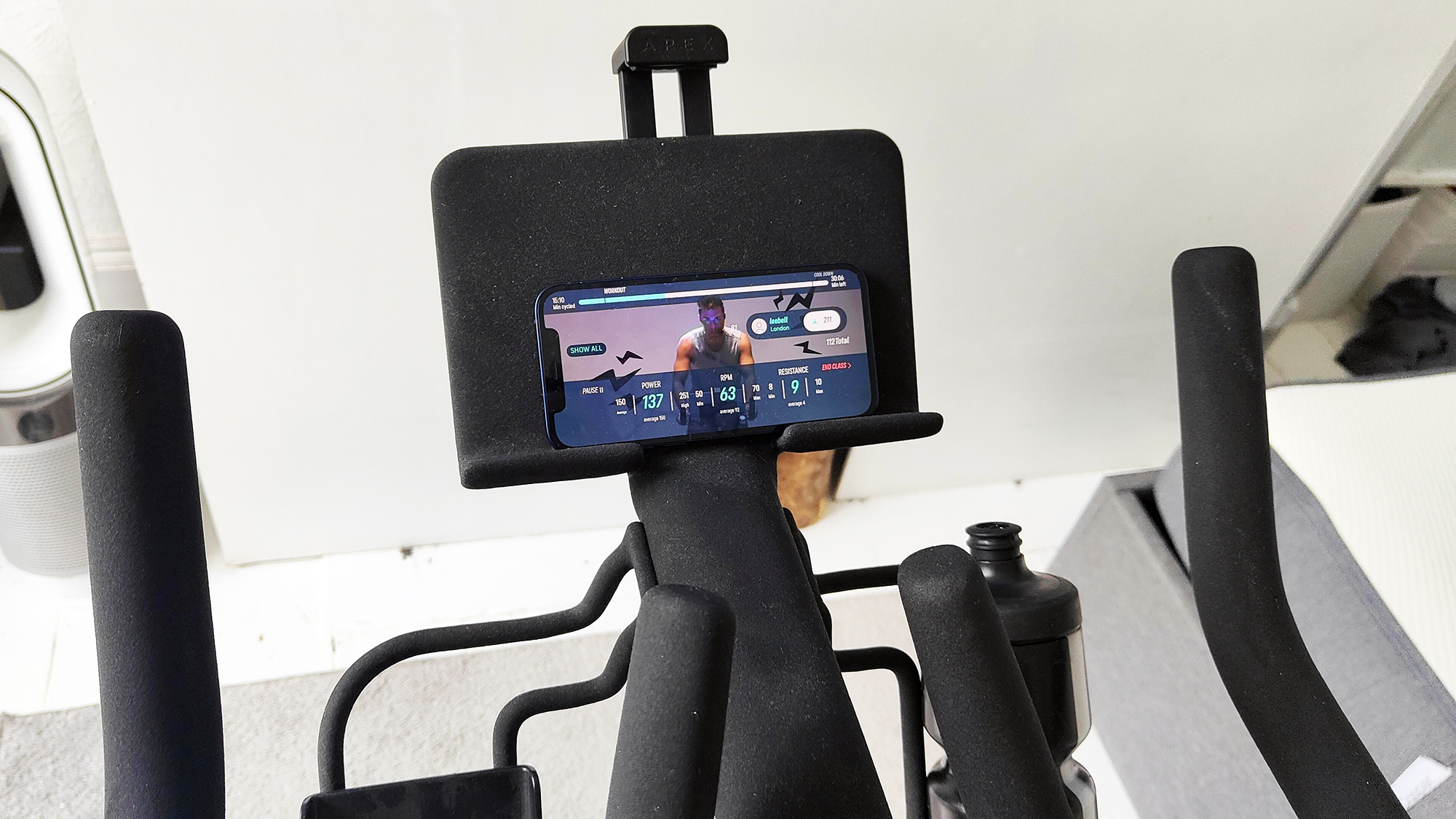
Apex Bike review: verdict
With the Apex Bike, you can expect to find a sleek, modern design and a good sturdy frame that feels solid and well made, complemented by some vibrant and fun virtual classes.
It doesn't feel quite as premium as Peloton in any aspect, but it does bring a very similar experience for a much cheaper price, making it ideal for those who feel a bit priced out by Peloton. If you’re looking for an exercise bike in the £1000-plus region, we can’t think of a better option.
Also consider
Peloton Bike (first generation)
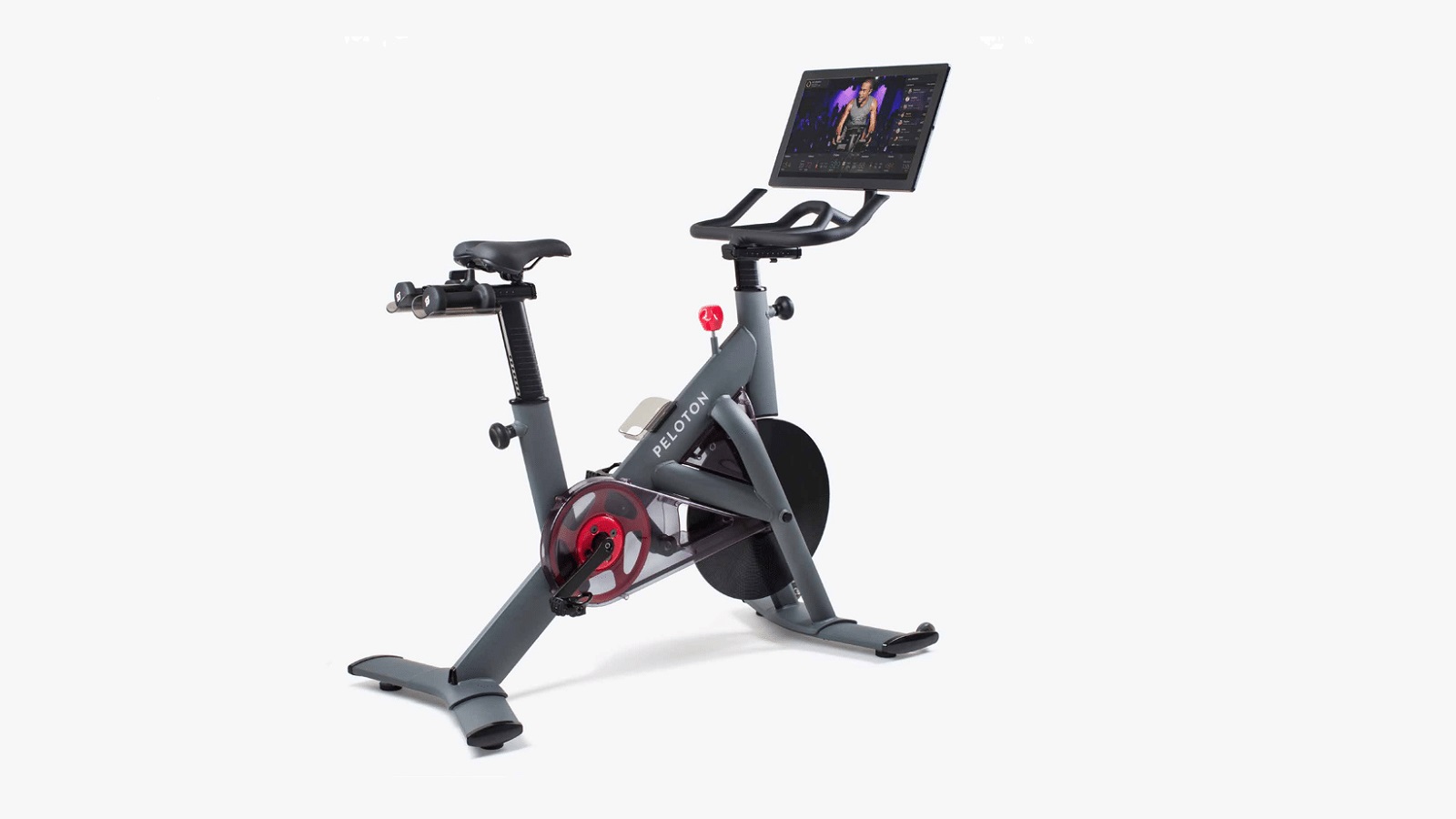
If you’re happy to spend a little more to get a more premium bike and ride experience, then look no further than US home gym giant Peloton. The brand’s first generation model starts at just £1,750 and touts a built-in 23-inch TV. The monthly subscription is a tenner more than Apex at £39, but this all-access fee also lets you attend a range of additional classes on the timetable via the Peloton App, including HIIT cardio, strength sessions, yoga and meditation.
Wattbike Atom
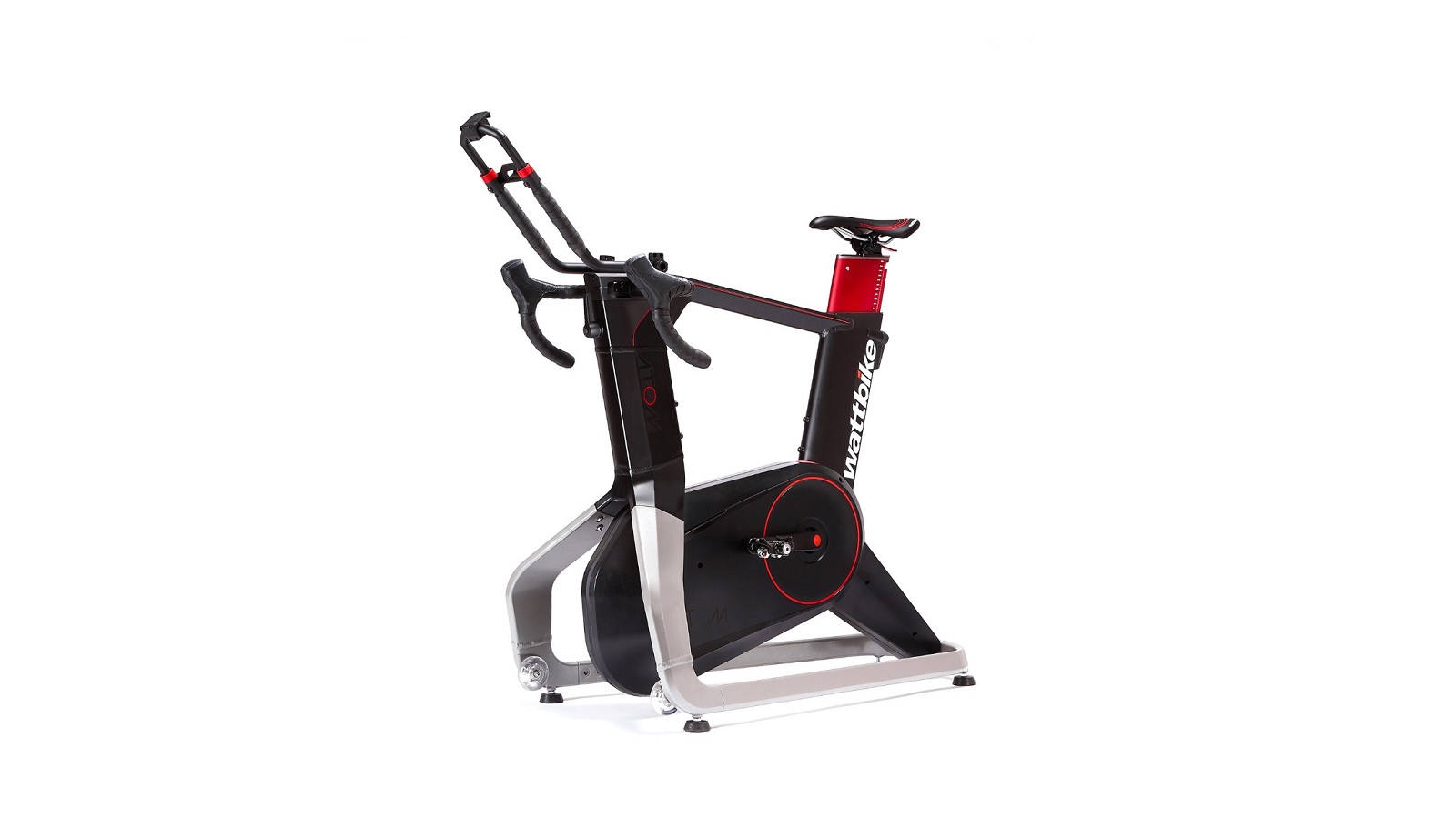
If on-demand spin classes aren’t really your thing, and you’d prefer an exercise bike that delivers more of a true-to-life bike ride experience, take a gander at the Wattbike Atom. This piece of equipment boasts exceptional build quality and an array of smart features. Chief amongst those is seamless connectivity to virtual training apps like Zwift, which automatically control the resistance as you race through real life cycling trials. This comes at an additional cost, however.
Lee Bell is a London-based journalist, copywriter, specializing in all things tech and lifestyle. He is also a qualified personal trainer. He started his journalism career a decade ago as a reporter covering the latest gadgets and innovations at tech tabloid The Inquirer. Lee went freelance in 2016 to broaden his expertise, moving into news, reviews and feature writing for a host of national print and online lifestyle titles such as GQ, Forbes, Esquire, Men’s Health, Wired, The Metro, and The Mirror. He has an insatiable appetite for travel, Dharma yoga, and the odd outdoor challenge.

